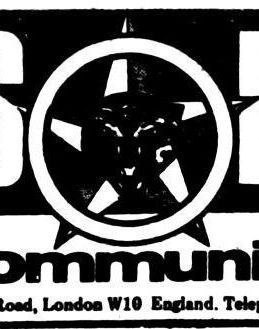GRASSROOTS is a black journal – which means that, in a society in which the black voice has been stifled, it articulates the aspirations, the fears, the hopes and despair of the black community in Britain. Like any other black journal it attempts to rally its people, give them purpose and organise them for survival in a hostile environment. And because it gets no support or even ordinary comradeship from its theoretically preordained allies – the white working class – it often looks abroad to other struggling black masses for its ideas and its programmes, its strategies and its rhetoric.
Around 1969 the black community in Britain, waking at last from a Rip van Winkle sleep of belief in British justice and casting around for solutions to the growing institutionalisation of racism and their abject powerlessness, bought up some of the philosophy and tactics of the Black Panther Party in America. Among them was a series of articles in the Party’s newspapers of April 1970 on ‘Organizing Self-defense Groups’ including a recipe for making petrol bombs and hand grenades. Grassroots reprinted the piece verbatim in its issue of August 1971. British society, through its police force, felt itself threatened and, with the help of a ‘black’ informer, picked on Tony Soares, one of the many associated with the paper, to pay the price of its alleged fear. What that price is going to be is still to be determined by Judge Alan King-Hamilton. But in questioning Tony Soares sanity, amongst other things because in the latter’s judgement Enoch Powell would, if he came to power, put all black people in gas chambers, the Judge must also call into question the judgement – if not the sanity – of the whole black community.
The irony is that a bomb made to Grassroots specifications does not even work. But the question is not how the Judge was unable to distinguish between the rhetoric and the reality (because that would be to question his intellectual fitness for the job) but why he chose not to make such a distinction. And if the answer is to be sought in the increasing racial bias of the British judiciary, a larger question must pose itself in the minds of the British people. For if, as Dicey has pointed out, ‘in England … the principles of the constitution are inductions or generalisations based upon particular decisions pronounced by the courts as to the rights of given individuals,’ the judiciary remains the last bastion of individual liberty. Conversely where, in the absence of a written constitution and a bill of rights, the judiciary, instead of correcting, reflects the bias of society against a particular section of it, judicial precedent would serve to entrench that bias in the conventions of the constitution.
Who guards the guardians?
